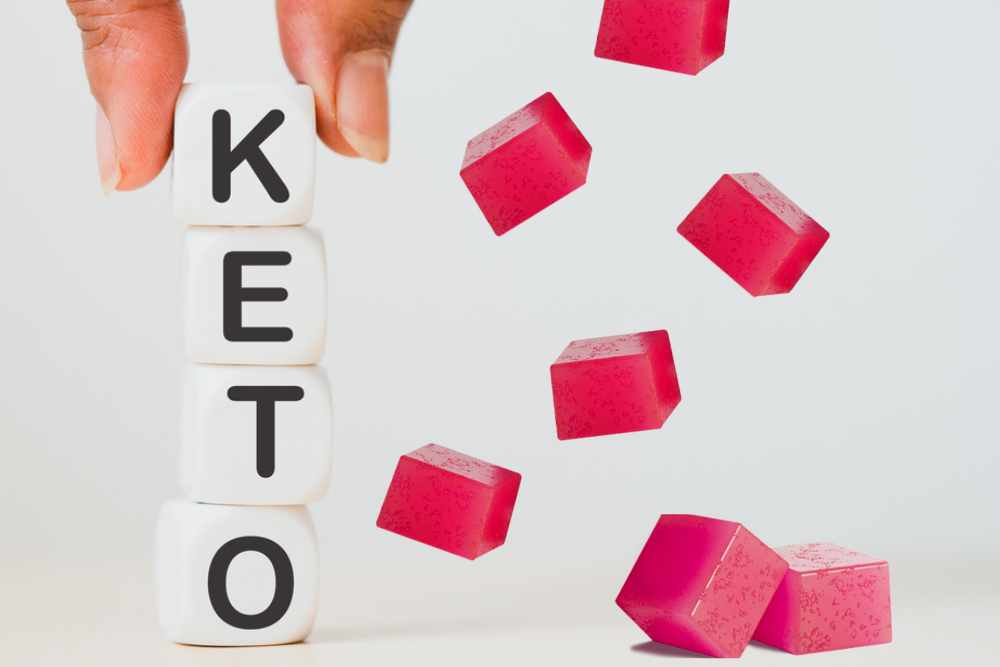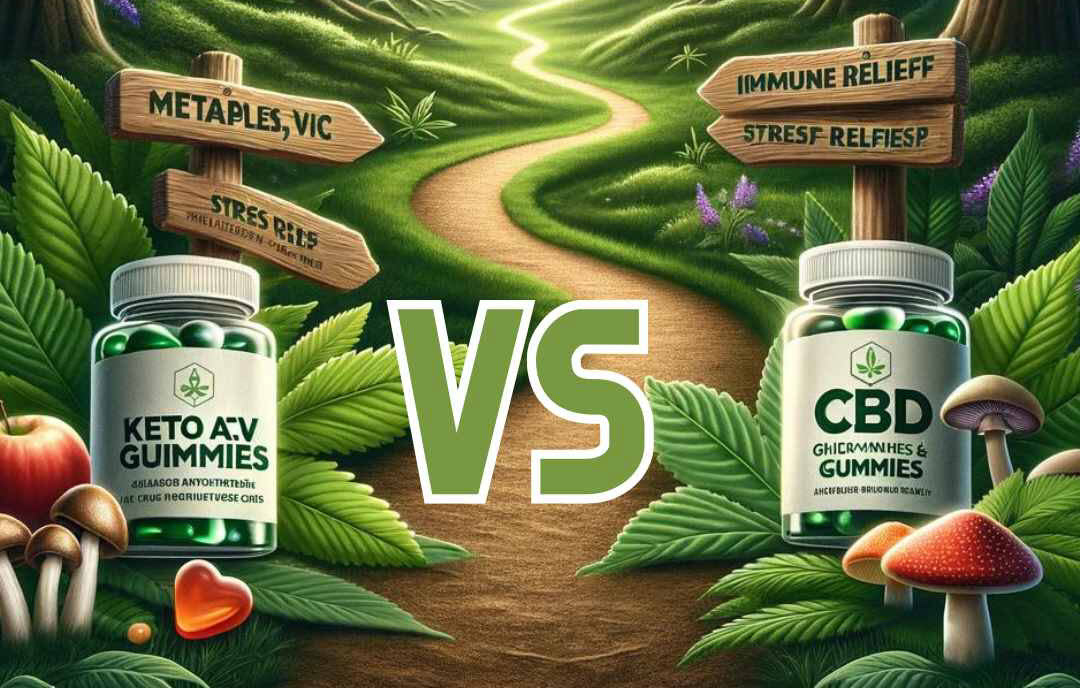According to the National Alliance on Mental Illness (NAMI), 1 in 5 adults experience mental illness each year. Even more so, 19.1% of US adults experienced mental illness in 2018 alone - that’s 47.6 million people.
It’s so important to measure just how common mental illness can be, so healthcare professionals can better understand its physical, social, financial, and emotional impact. These numbers are also extremely powerful tools for raising awareness, breaking the stigma, and advocating for better health care.
Speaking of raising awareness, CBD has been making major headway in the world of holistic health and wellness in the last decade. Whether you’ve seen an ad on social media or you know someone that’s tried it, CBD is quickly becoming the hot topic of conversation.
In 2017, the World Health Organization (WHO) even reported that CBD may have therapeutic benefits on over 10 different diseases and conditions.
Researchers are continuously studying cannabidiol and it’s potential therapeutic effects on humans. The results? Definitely worth reading into.
Can CBD help mental health? Can CBD really help mental illness?
Food for thought: what if it can?
WHAT IS CANNABIDIOL (CBD)
Cannabidiol, commonly referred to as CBD, is just one of the most prevalent active ingredients of the cannabis plant. It is the non psychoactive component, meaning it won’t “get you high” or “stoned”.
So if it doesn’t get you high, how can it help and how does it work?
Cannabidiol supports the endocannabinoid system, also known as the ECS. We each have an endocannabinoid system in our bodies. The ECS works with other major organ systems to maintain a balance in homeostasis. Having an appropriate balance in hormones and chemicals in the brain is essential to maintain this homeostasis.

The ECS has two main receptors: cannabinoid receptor 1 (CB1) and cannabinoid receptor 2 (CB2). CBD binds to these receptors indirectly, thus, you won’t get the “high” that is typically associated with tetrahydrocannabinol (THC), which binds directly with the receptors.
Evidence from preclinical studies suggested that CBD had potential therapeutic benefits ranging from anti-inflammatory agent to neuroprotective, antipsychotic, analgesic, anticonvulsant, antiarthritic, and antioxidant properties.
Cannabidiol has also been studied for its effects on mental disorders as well as mental health. The research behind it? Well worth filling your noggin!
IMPORTANCE OF MENTAL HEALTH
Mental health includes one’s emotional, psychological, and social well-being, according to the Centers for Disease Control and Prevention (CDC). Your mental health can affect how you feel, think, and act. It can help determine how we relate to others, how we handle stress, and how we make healthy choices.
Mental health is important in every stage of your life - from childhood, to those awkward teenage years, and through adulthood.

Many factors can contribute to your mental health including life experiences, such as trauma or abuse, biological factors, such as brain chemistry, environmental factors, such as living quarters, and family history of mental health problems.
Positive mental health and wellness allow individuals to:
-
Work productively
-
Cope with life stresses
-
Realize their full potential
-
Make meaningful contributions to communities
Is there a clear moment when positive mental health gets pushed back on the back burner? What does mental illness look at?
MENTAL HEALTH VS MENTAL ILLNESS
Is there a definitive line between mental health and illness?

The CDC defines mental illnesses as conditions that may affect a person’s feeling, mood, thinking, or behavior, such as anxiety or depression.
These conditions may be chronic (long-lasting) or occasional; affecting someone’s ability to function on a daily basis or ability to relate to others. Mental illness does not discriminate; it can affect anyone regardless of age, race, sex, gender, social status, income, sexual orientation, or other aspect of identity.
The American Psychiatric Association found that nearly 19% of US adults experience mental illness in one form or another.
Mental illness is treatable and mental health is attainable. Does cannabis have the potential to be a lending hand here, more than we think?
CBD OIL AND MENTAL HEALTH
The therapeutic application of cannabidiol is gaining rapid interest due to the expanding evidence for its use.
A 2020 systematic review investigated 23 studies on CBD in the treatment of psychiatric disorders. Researchers found that cannabidiol was helpful in alleviating symptoms including social anxiety disorder, comorbidities of autism spectrum disorder (ASD), as well as attention deficit hyperactivity disorder (ADHD).
This study suggested that the antipsychotic, neuroprotective, and anxiolytic properties of CBD have a potential role in treating various psychiatric disorders.
A 2019 meta-analysis and systematic review explored how cannabinoids assisted in the treatment of mental disorders and symptoms. 83 studies were included in this review and analysis, including studies on anxiety, depression, post-traumatic stress disorder (PTSD), ADHD, and psychosis. Researchers did not find significantly differences in mental disorders or symptoms with THC treatment, with and without CBD.
However, researchers concluded this article suggesting that cannabinoids may improve mental disorders and symptoms.
Published in Cannabis and Cannabinoid Research in 2018, an open-label clinical trial looked at the effects of CBD on the psychological symptoms and cognitive function in regular cannabis users.
This open-label clinical trial demonstrated that prolonged cannabidiol treatment appeared to have promising therapeutic effects for improving psychological symptoms and cognition.
A 2012 review out of Brazil investigated the mechanisms involved in CBD in mental disorders. Researchers included both animal and human studies. Though this study is 8 years old now, the conclusions regarding cannabidiol as a safe compound with a wide array of therapeutic applications is holding promise.
This review highlighted that 9 of 9 clinical studies reported the effects of CBD decreased psychotic symptoms, regardless of dose amount.
Though research specifically on mental health and cannabinoids are umbrellaed, the findings are worth noting. Further research, including clinical trials, are needed to further explore the effects of cannabinoids as a potential therapeutic application for mental disorders.
KEY BENEFITS OF CBD ON MENTAL WELLNESS
Now that you’ve seen a little bit about what cannabinoids can do for mental disorders and symptoms, let’s touch on mental health and wellness.
Cannabidiol has been shown to have anti-anxiolytic properties as well as being an anti-inflammatory agent.
Here’s where CBD connects mind and body
A 2012 brain mechanism study found that cannabidiol promoted anxiolytic-like effects in the dorsal periaqueductal grey matter (DPAG) of the brain. Moreover, it could help inhibit enzymes and transporters in the brain, indirectly increasing the levels of “feel good” neurotransmitters.
1. Decreases neuronal damage promoted by protein deposits in the brain
2. Increases pathways that play key roles in brain health
3. Has potential action of inhibiting oxidative stress
4. CBD may enhance levels of dopamine release
In 2006, researchers investigated how cannabidiol modulates sleep in rats. They found that CBD modulated wakefulness, increased alertness, and increased dopamine levels.
Not only has this incredible herb been suggested to help individuals’ physical ailments and illnesses, but research has also shown it’s powerful impact on mental health and disorders.
WHAT DOSAGE SHOULD I TAKE
There isn’t an exact answer here. When thinking about taking any new supplement, always consult with your physician first. As a general rule of thumb, it’s always good to start “low and slow” when incorporating a new supplement into your routine. If you decide to try a CBD oil, it will come with a dropper with the measurements outlined on the droplet. Each of our CBD tinctures contain measurement indicators on the droplet, up to 1.0 mL per full drop of high-quality CBD.

We recommend starting with half the recommended dosage and increase from there. Whether you are taking CBD in the morning to start your day or taking it an hour or two before your meditation session, you may reap the beautiful benefits of cannabidiol.
Although the use of cannabidiol holds potential promise for those with mental health issues, additional clinical trial studies are needed to determine the appropriate doses for effective treatment.
7 WAYS TO MAINTAIN POSITIVE MENTAL HEALTH
Ready for the goodness?
Positive mental health is ever-evolving and looks different to each and every one of us. Whether you are wanting a new perspective on how to self-care or looking for ways to self-improve or dig deeper into who you are, here are just some of the ways I like to check-in with my mental health in my daily life:

CANNABIDIOL AND MENTAL HEALTH: FINAL THOUGHTS
You’ve got this far, bravo! I know that was a ton of information, but knowledge is power, right? Each day that passes, more and more research findings are becoming available, suggesting the wonderful benefits of cannabidiol are therapeutic and impactful on mental health.
Cannabidiol studies are showing promise for potential therapeutic benefit on its effects on mental disorders and symptoms. Maybe this all natural herb is exactly what you’re looking for to boost your sense of relaxation. Wherever you are in your mental health journey, know that there are options available to you and for you.
*DISCLAIMER: The information in this article is for educational purposes only. It does not exploit or provide medical advice of any kind. Therefore, any reliance you place on the information below is strictly at your own risk. Please check with your medical provider before starting or changing a CBD routine.
Nanocraft Sciences
Content Writer x Physiologist x ResearcherKirsten Thornhill was born and raised in a small farm town in Northern California. Kirsten graduated with a Master of Science degree in exercise physiology from Point Loma Nazarene University. She is very passionate about human physiology and the metabolic and nutritional adaptations that occur during exercise in active individuals and athletes. Kirsten has specialized in teaching clinical and practical exercise and rehabilitation applications. She enjoys educating and informing people on the importance of lifetime movement, holistic and lifestyle medicine, and health research and development. Her passion for alternative medicine enables her to strive when promoting health and education.
Sources:
Black N, Stockings E, Campbell G, Tran LT, et al. Cannabinoids for the treatment of mental disorders and symptoms of mental disorders: A systematic review and meta-analysis. The Lancet Psychiatry. 2019.
Campos AC, Moreira FA, Gomes FV, et al. Multiple mechanisms involved in the large-spectrum therapeutic potential of cannabidiol in psychiatric disorders. Phil Trans Soc B. 2012.
Khan R, Naveed S, Mian N, et al. The therapeutic role of cannabidiol in mental health: A systematic review. Journal of Cannabis Research. 2020.
Sarris J, Sinclair J, Karamascoska D, et al. Medicinal cannabis for psychiatric disorders: A clinically-focused systematic review. 2020.
Solowij N, Broyd SJ, Beale C, et al. Therapeutic effects of prolonged cannabidiol treatment on psychological symptoms and cognitive function in regular cannabis users: A pragmatic open-label clinical trial. Cannabis and Cannabinoid Research. 2018.
- #cannabidiol
- #cbd
- #cbdforathletes
- #cbdoil
- #hemp
Tagged under














No comments yet!
Be the first to comment